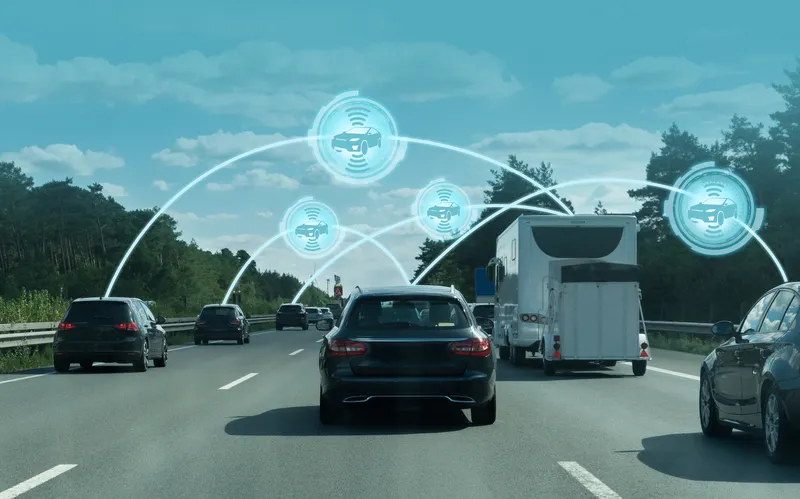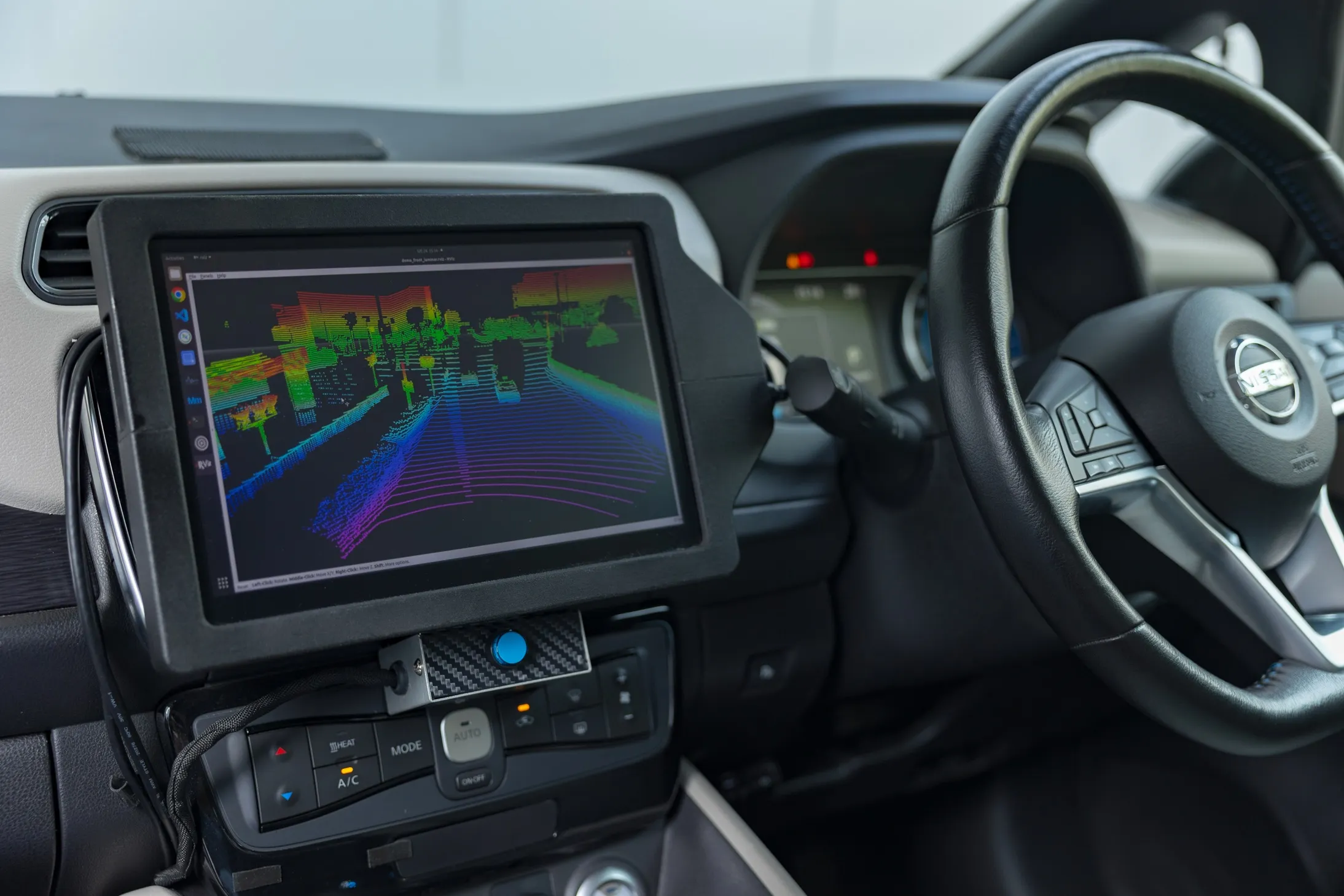
In partnership with Navya, an innovative self-driving and electric vehicle supplier, and Autotalks, a leading supplier of automotive-grade V2X RF transceivers and communication processors, Marben will showcase how the communication of vehicles and traffic lights can significantly improve and secure driverless vehicles that operate on open roads. The demonstration will take place outdoors.
Three brand new Navya vehicles are autonomously transporting delegates from the exhibition centre to the congress centre over a 1.5km distance. Marben V2X software together with Autotalks V2X hardware devices allows the Navya vehicle to get the signal phase broadcasted by the six traffic lights spread over the route thus securing the crossing of the intersection.
Marben V2X is a complete software solution supporting both the US (SAE/IEEE standards) and the European (ETSI standards) V2X profiles. It has been designed to satisfy V2X demanding performance, reliability and robustness requirements. Marben V2X is hardware agnostic (CPUs, 802.11p chipsets, Hardware Security Modules) and can run on most of the available operating systems including Linux, QNX, ThreadX or Android.
By embedding security and privacy management, offering user-friendly APIs and a predefined set of road safety and traffic optimisation applications, the software dramatically accelerates the development and the integration of V2X onboard and roadside units as was proved by the quick integration with Autotalks' chipset.
As Michel Perin, Marben Sales & Marketing Director, points out “Marben V2X next-generation software will include a fusion of data collected from V2X communication and from in-vehicle sensors such as video cameras, radars or lidars. Our objective is to provide more and more accurate information for a fully automated driving experience and an optimal traffic flow.”









